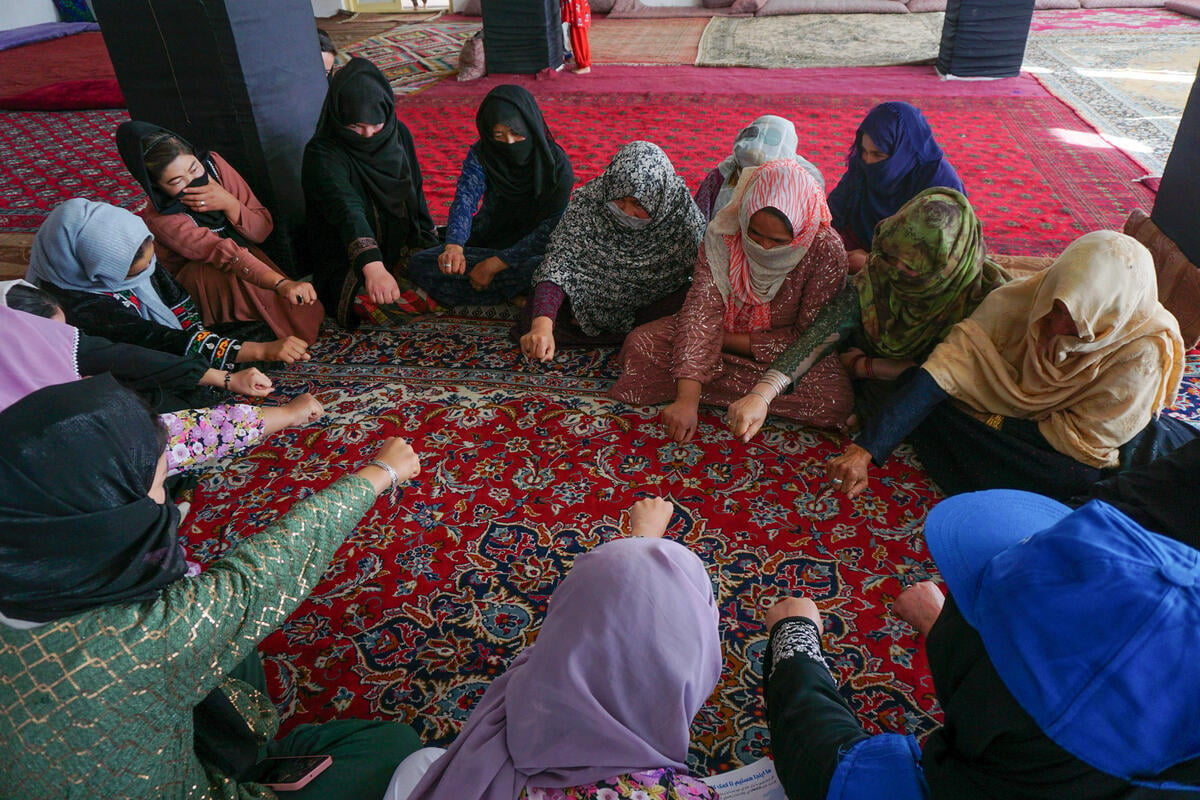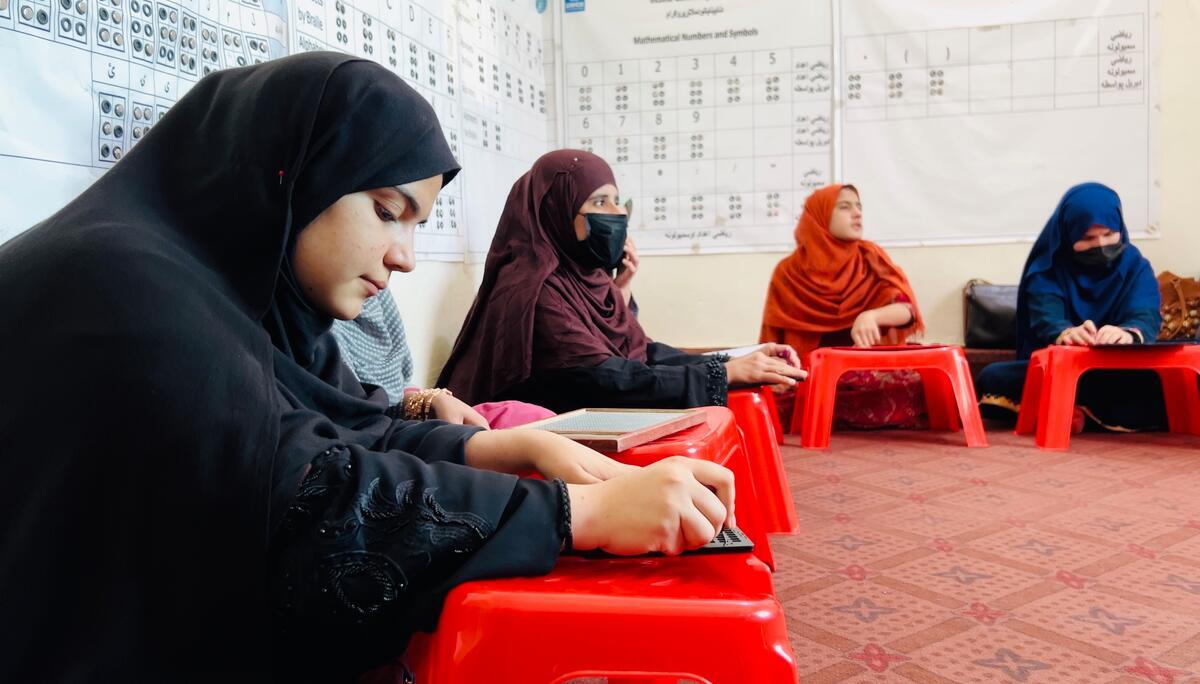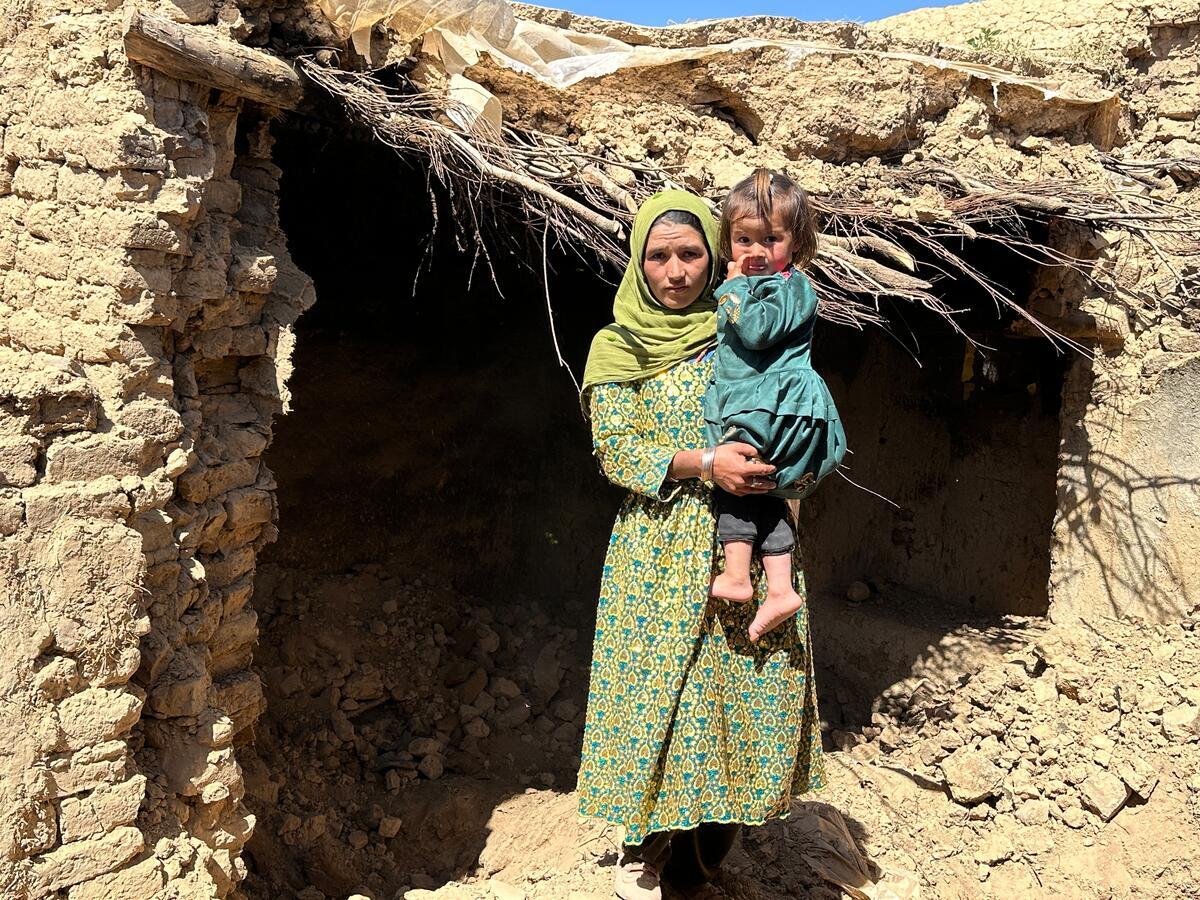Afghanistan Humanitarian Update No. 54
Afghanistan Humanitarian Update No. 54
21 February 2002
At a Glance:
- UNHCR works to ease needs in southern Afghanistan
UNHCR works to ease needs in southern Afghanistan
In an effort to try to ease the latest exodus of refugees from southern Afghanistan, UNHCR on Wednesday began loading supplies at its stockpile in Peshawar in north-western Pakistan, for provision to displaced Afghans inside southern Afghanistan's Kandahar Province.
The UN refugee agency plans to send items for up to 25,000 people - 5,000 families - into southern Afghanistan so that its staff in Kandahar and Spin Boldak can begin distributing urgently needed aid in order to try to ease the latest influx.
Hundreds of Afghans are arriving daily at Pakistan's Chaman border crossing after travelling for weeks inside their war and drought-ravaged homeland in search of aid and protection.
UNHCR is initially sending 23,000 blankets, 13,000 quilts, 5,000 tents, 3,000 heating stoves, 2,000 cooking stoves and 2,000 kitchen sets from Peshawar southwards to Quetta. The items will be shifted across the border during the next week following the Eid holiday. The International Committee of the Red Cross has also provided UNHCR with 1,000 tents for use with the Afghans at Chaman.
The UN's World Food Programme today finished distributing food in Spin Boldak, where thousands of displaced Afghans are gathered in five makeshift camps. Agencies hope that this latest aid distribution will work to alleviate the need for at least some of the Afghans to enter neighbouring Pakistan's crowded refugee camps.
Despite UNHCR's daily efforts to register the new arrivals at its Killi Faizo transit camp, between 15,000 and 20,000 Afghans fleeing the unrelenting effects of the drought, lack of food aid, and ethnic tension remain camped in below freezing temperatures under only makeshift shelters of patched-up quilts and flimsy plastic just outside Killi Faizo.
Some of Chaman's Afghans - many of whom have been awaiting their turn to enter Killi Faizo for several weeks - are ethnic Pashtuns fleeing human rights abuses. Others are Kuchi nomads who say that while they stopped at Spin Boldak's displaced person camps, they failed to find sufficient aid so they opted to cross the border to seek assistance in the UN refugee agency's new sites.
Once inside Killi Faizo, the new arrivals will be relocated to UNHCR's new camps deeper inside Pakistan. UNHCR shifts up to 2,000 newly arrived Afghans daily from the border site to its new camps deeper inland, but Afghanistan's latest exodus has created burgeoning refugee numbers in a country already sheltering more than two million Afghans.
UNHCR operates ten new refugee camps in Pakistan's Baluchistan Province that shelter some 150,000 new arrivals. But the more than 15,000 persons waiting outside the Killi Faizo transit camp and the many more Afghans who have reportedly been seen moving southwards from Kandahar will swell that number.
UNHCR believes that more aid needs to be distributed to help stem some of the reasons behind the latest exodus. But with insecurity for both the local population and relief agencies still problematic in many parts of Afghanistan, the international community must do more to help the Interim Authority in Kabul extend its control and to combat banditry and violence.








